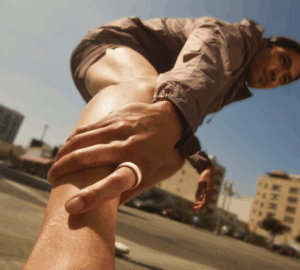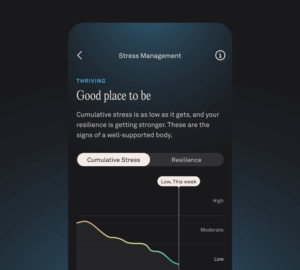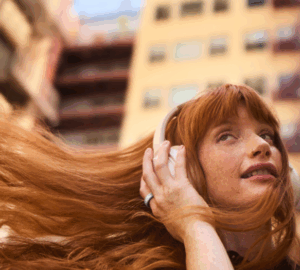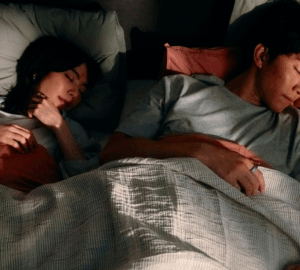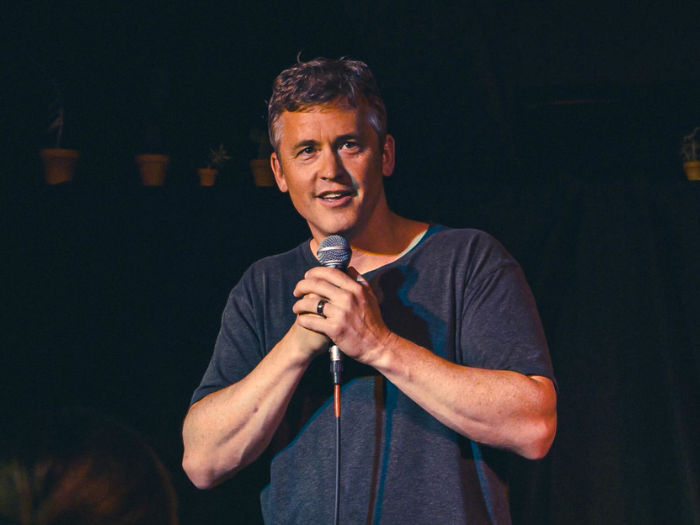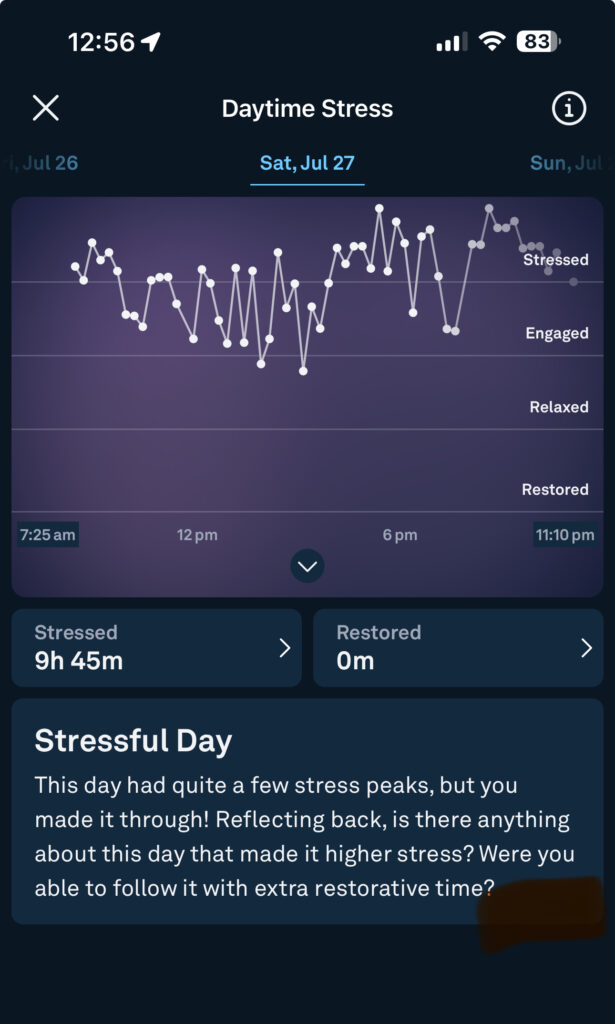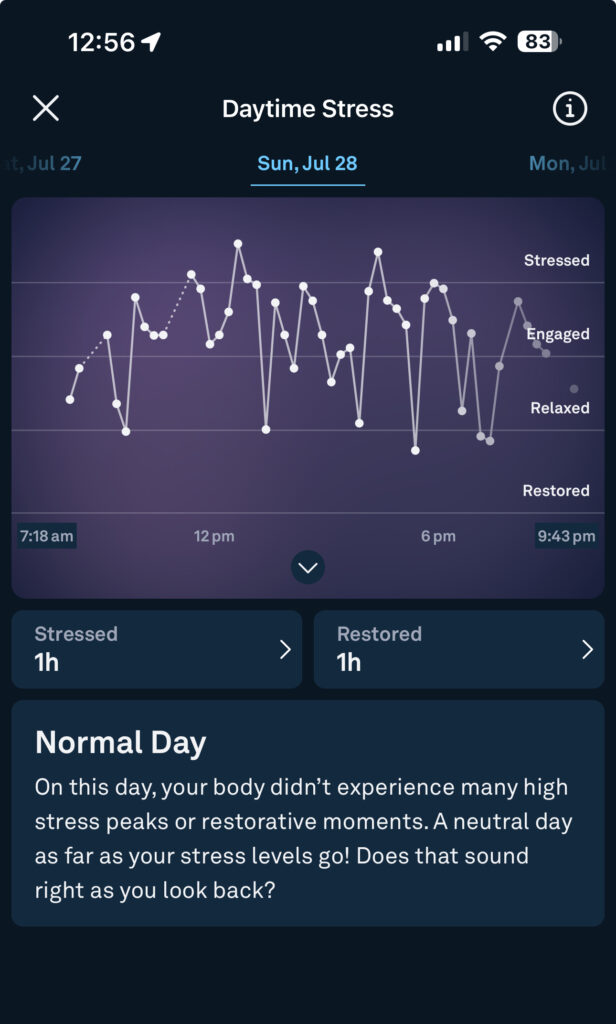Who: Matt McCusker, 38, Austin, TX, comedian
Surprising Oura insight: He discovered his stress levels overall were higher than expected—but interestingly, his level drops to “Restored” when he performs standup comedy.
Matt McCusker is a comedian, writer, and co-host of the successful Matt and Shane’s Secret Podcast—a top 30 podcast in the U.S. with over 600,000 followers on YouTube. He’s also a devoted husband and father of two young children.
While the life of a standup comedian may be typically associated with late nights and partying, McCusker has chosen a different route. With Oura, he’s realized the power that naps, well-timed workouts, and skipping drinks can have on his sleep and well-being.
What led you to Oura?
I travel a lot doing standup, and my sleep was suffering. So I decided to get an Oura Ring to get some data on how bad my sleep actually was. Turns out, it was really bad. I wasn’t getting nearly enough sleep on the road, and my deep sleep in particular was always very low—the maximum was around 20 minutes.
How have you improved your sleep with Oura?
When I’m not performing standup, I aim to go to bed early—around 9:30pm—because I’ve learned you get more deep sleep earlier in the night. But it’s not always possible. When I’m performing, I sometimes don’t get to sleep until 4am and still wake up at 8am.
During the day, I make sure to get some fresh air, do a light workout, and prioritize a long nap. Interestingly, my naps are usually heavy on deep sleep, so they’ve become non-negotiable.
I’ve also had to rethink habits that were disrupting my sleep. For instance, I used to run late at night after my kids went to bed, but running at 9pm and then trying to sleep by 10:30pm left my heart rate elevated all night, ruining my deep sleep.
Cutting back on alcohol has been another big change. Even one or two drinks, which I used to think was fine, completely wrecks my sleep and Recovery Index.
READ MORE: 8 Ways to Get More Deep Sleep, According to Oura Members
Do you have any napping tips?
I don’t put pressure on myself to fall asleep when I nap. I just focus on relaxing—whether I sleep or not, I know it’s still beneficial. I’ll put on an eye mask and play some meditation music, treating it like a mindfulness session if I don’t doze off. That way, I’m either deeply relaxing or meditating, so it’s never wasted time. That said, I have two young kids, so when I do lie down, I’m usually out.
Cutting out coffee also helps me nap better because my stress levels are lower. Before Oura, I’d just try to power through my tiredness with more and more caffeine, which ended up impacting my sleep.
READ MORE: How Long Should You Nap?
What’s the most interesting insight you’ve learned about yourself from Oura?
I learned that I was way more stressed than I thought. I always considered myself a relaxed person, but when I started using Oura, my Daytime Stress graph was constantly bouncing between Elevated and Stressed throughout the day, without any time in the Restored zone. Seeing that data was a wake-up call.
Now, I use Oura as a feedback loop. I check my stress graph and reflect on what might have caused spikes during the day. Cutting out caffeine made a noticeable difference—it allows me to recover from stress peaks more effectively, rather than them staying constantly elevated.
An example of Matt’s high stress levels on a day that he consumed caffeine (left) and a more normal day without it.
Beyond that, I’ve learned to catch myself in the moment and actively work toward being more relaxed. It’s like real-time neurofeedback.
I was also surprised to see how relaxed I am on stage. My stress levels usually start high but as my set continues, they completely plummet into the Relaxed or Restored zone. I’ve always felt at ease performing, but it’s cool to see my body reflect that, too.
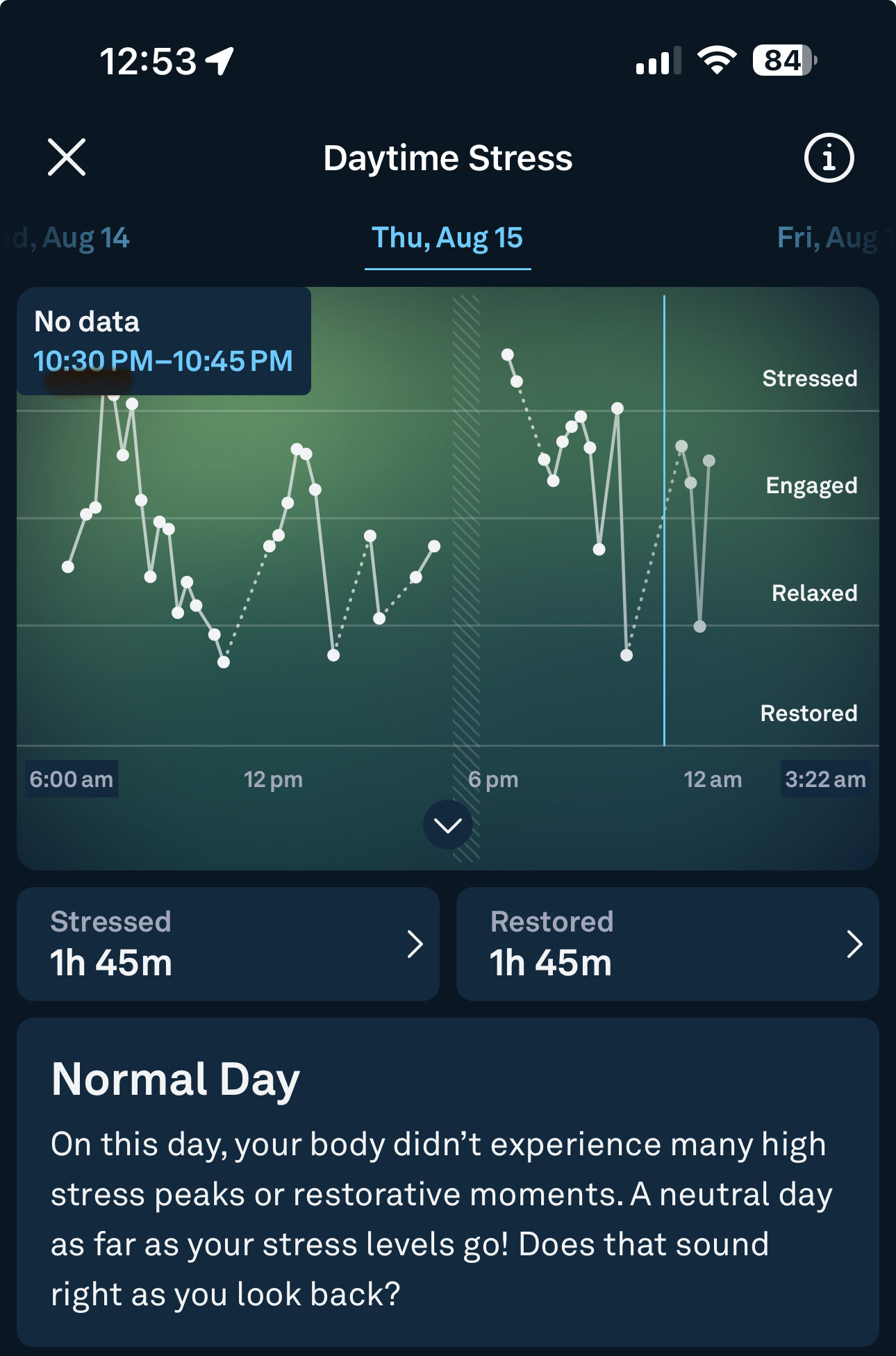
How do you maintain healthy habits when on tour?
Staying healthy on the road can definitely be a challenge, but I think I do a decent job of staying on track. One benefit of being a comedian is having more free time than most people, so I can squeeze in workouts or focus on relaxing during the day. That helps balance the late nights and the spikes of cortisol that come with the late nights. It’s a strange rhythm—sometimes you feel like you’ve packed a week’s worth of stress into a couple of nights, but then it evens out, and you get to reset.
I’ve also been working to fully separate alcohol from performing. There’s occasionally a pull to have a drink after a show to unwind, but I’ve been avoiding that more often. Last week, for example, I did seven shows and skipped drinking entirely until maybe the last one or two nights. It reminded me I don’t actually need it. For me, keeping alcohol and performing separate feels healthier, and it helps me stay consistent in my habits.
How has Oura helped you as a husband and father of two young children?
It has been incredibly helpful for me. When it comes to my wife, Oura has given me a whole new level of understanding and compassion for what she goes through, especially at certain points in her menstrual cycle. One time during her period her Readiness Score was in the 50s. I thought she was just being mean; I didn’t realize she was dying [laughs]. It helped me be more empathetic.
As a father of two young kids, Oura has helped me be more patient and adaptable when looking after them interferes with my sleep. I’ve also learned to be patient with myself, recognizing that there’s an unpredictable element to my life right now. Even if both my kids wake up at different times during the night, I don’t freak out about it; I just roll with the punches and try to stay present, knowing that this phase won’t last forever.
RELATED: This International DJ Turns to Oura to Improve His Sleep
What’s Your Oura Story?
Everyone’s story is unique, and we’d love to hear yours. Share your story here.






